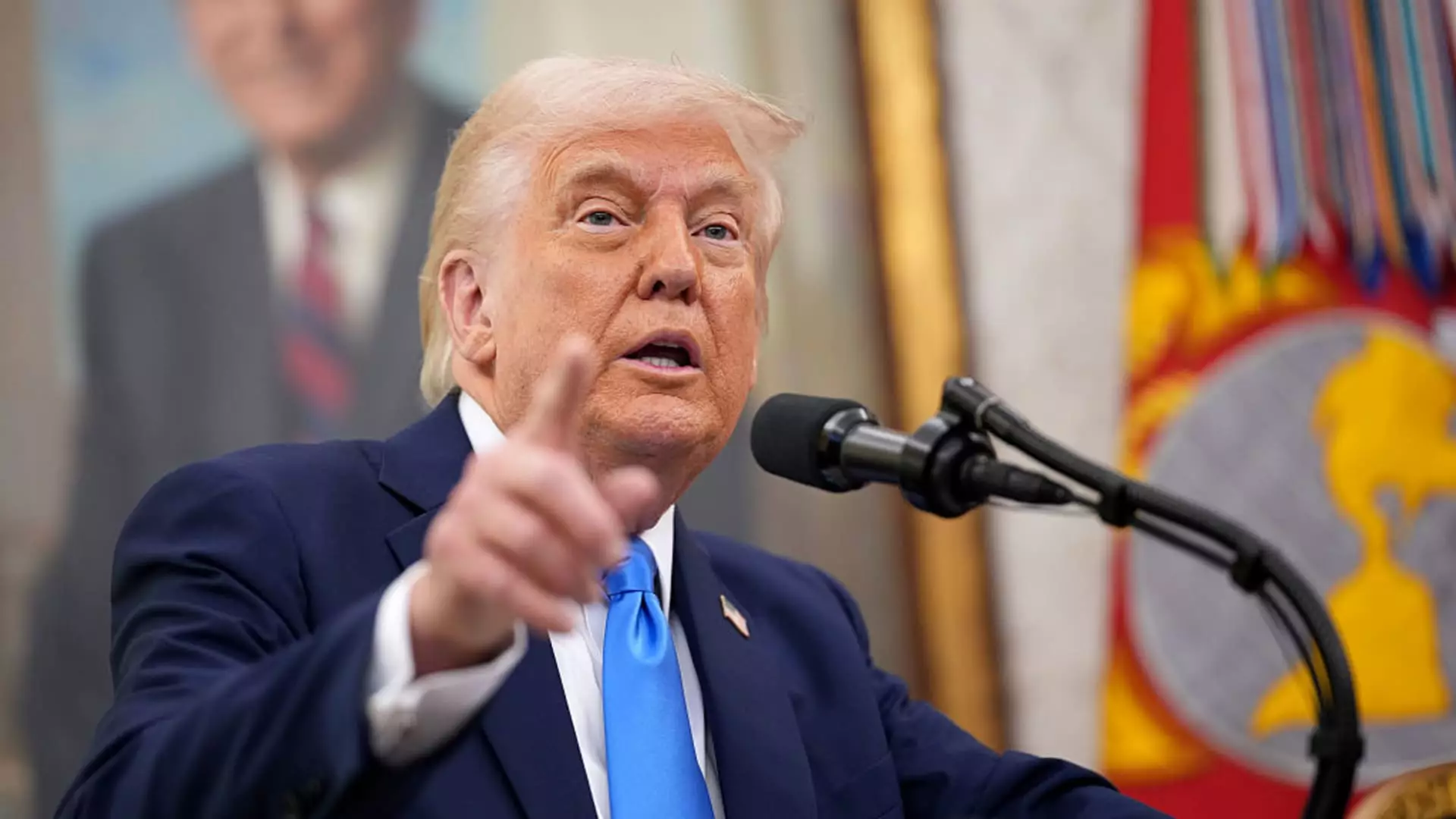President Donald Trump’s administration is set to unleash a new wave of tariffs that promises to shake global trade dynamics to their very core. This latest initiative, framed as “reciprocal tariffs,” is shrouded in uncertainty, leaving both businesses and allied nations in a state of apprehension. Trump has audaciously dubbed the announcement day as America’s “liberation day,” heralding a new era of trade that is, in his view, overdue. Yet, the specter of confusion looms large — questions abound about how these tariffs will be distributed across various countries and industries, and which nations will bear the brunt of this economic strategy.
While Trump envisions these tariffs as a significant course correction for America’s economic relations, the reality is fraught with complexity. The intention to target nations that impose hefty tariffs on U.S. goods is commendable, but the approach reeks of recklessness. Key figures within the administration acknowledge the challenge of pinpointing just who these “dirty 15” countries are, creating an atmosphere of unpredictability. Moreover, Trump’s erratic rhetoric has muddled what could have been a coherent strategy. There is an alarming tendency to undermine the specifics of these tariffs, with officials providing no concrete names, merely perpetuating a narrative that paints America as a perennial victim of unfair trade.
Dissecting the Trade Deficit Argument
Trump’s rationale centers on the notion that America is being taken advantage of, particularly in light of the trade deficits plaguing the nation. He asserts that the U.S. over-imports, yet this argument presents a false dichotomy. The reality is that trade deficits can signal robust domestic demand; Americans have a penchant for goods produced at more affordable prices abroad. By framing this narrative as a straightforward case of disadvantage, Trump disregards the complexities of global trade dynamics.
His administration’s strategy undermines the nuances of economic relationships, glossing over the long-term advantages that come from engaging with international markets. Many economists would argue that this deficit should not be seen merely as a financial shortfall; rather, it can contribute to lower costs and improved standards of living domestically. Trump’s simplistic view misses the mark entirely; it highlights a profound misunderstanding of economics that could yield irreversible damage to the U.S. economy.
The Broader Impact of Tariffs on Global Relationships
The forthcoming tariffs are not merely a unilateral act; they disrupt the delicate relationships the U.S. has cultivated with numerous economic partners over decades. An unforeseen consequence of this aggressive tariff strategy is the potential ripple effect it could cause across global markets. Countries lumped together under the shadow of these tariffs may respond with their own levies, creating a vicious cycle of retaliation that could lead to a full-blown trade war.
Moreover, the promise of such measures raises eyebrows among allies who have long viewed the United States as a bastion of free trade. Nations such as Canada and Mexico, which historically share amicable trade ties, might find themselves caught in the crossfire of Trump’s broad-brush approach. It is imperative to consider that economic partnerships are not merely transactional; they are built on trust and mutual benefit. The unraveling of this fabric could lead to long-lasting resentment, isolating the U.S. in a global landscape that increasingly favors collaboration over contention.
Unveiling a Clueless Strategy
Ultimately, Trump’s plan for tariffs reflects a lack of understanding regarding the intricacies of global economics and a shortsighted view of trade relations. The inconsistencies in messaging from the White House and within his administration reveal a chaotic strategy that lacks coherent direction. As businesses brace for the impending impact, it is evident that the repercussions of these tariffs may far exceed the incentives they were supposed to produce.
In attempting to shield American industries from international competition, the administration risks squandering the very principles of free trade that have historically served the U.S. well. The implications of this strategy could hinder innovation, stifle growth, and ultimately diminish the economic prowess that America has long enjoyed. In a world growing ever more interconnected, Trump’s retreat to isolationist policies is not just regressive; it’s a dangerous gamble that could reshape the global economy for generations to come.


Leave a Reply